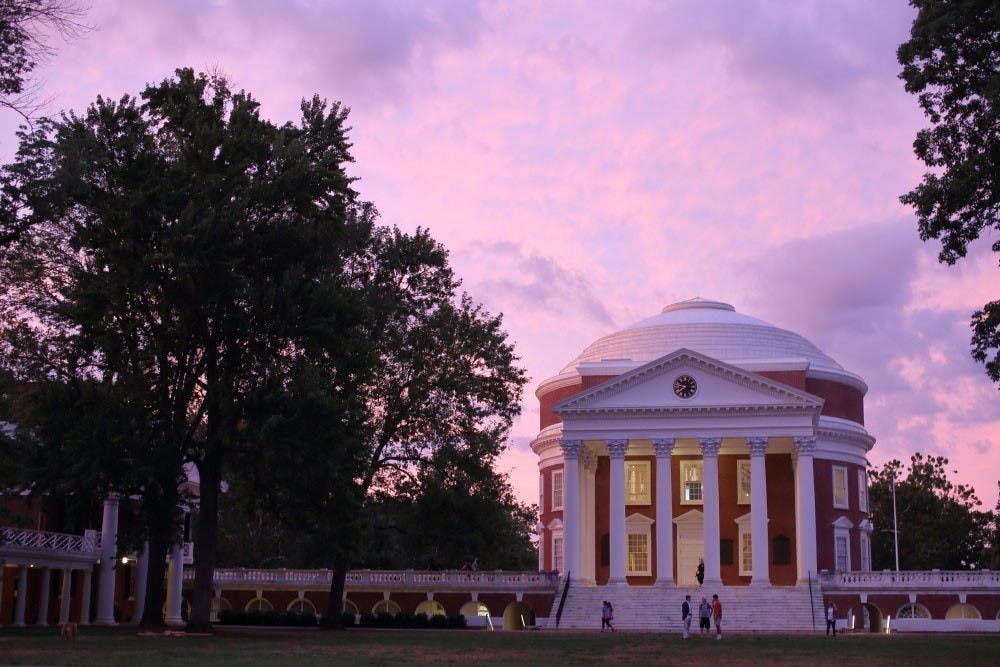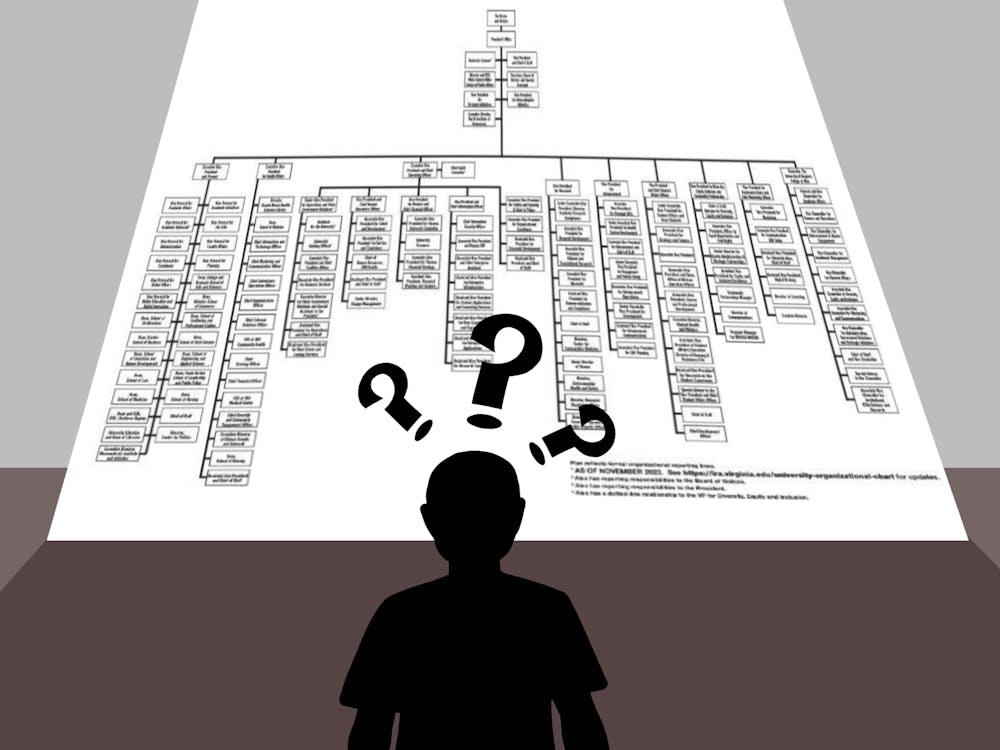In 1818, shortly after construction had begun on the Academical Village, Thomas Jefferson outlined in a letter to a friend his vision for the role of education in the newly established republic. "If the condition of man is to be progressively ameliorated, as we fondly hope and believe, education is to be the chief instrument in affecting it." In establishing the University, Jefferson believed that this institution cradled in the foothills of the Blue Ridge Mountains would serve as the nexus of intellectual and political free thought, ensuring the survival of the fledgling republic and nurturing future generations of leaders and scholars alike.
In particular, unlike contemporary institutions such as Harvard and William and Mary, Jefferson envisioned that his University would have a modern and secular emphasis — free from religious influence with the deliberate expectation that students would play a proactive role in their education. One of the most important elements in Jefferson’s idea of higher education was his belief that the hierarchy shared by students and faculty members should be leveled.
Because of this, not only was the Academical Village — a shared space where students and faculty members alike would cohabitat — a radical idea but so too was the manner in which students and faculty members would address one another. Unlike other institutions where students would traditionally greet and address faculty members by their titles — such as “doctor” or “professor” — at U.Va. students would simply refer to their instructors and other academic officials by using the title of “Mr.” and vice versa in the manner in which professors would address their students.
According to English Professor John T. Casteen IV, this gesture, although largely symbolic in nature, was not meant to belittle the accomplishments of instructors nor imply a complete sense of hierarchical equivalence between students and faculty members, but rather to simply remind both parties of their analogous roles as scholars in the overall pursuit of lifelong learning. To this end, Jefferson believed that a symbolic gesture such as this would compel students to see themselves in a position greater than that of mere tutelage, fostering a unique sense of shared learning that was rare amongst other institutions during this period of time.
While this long-standing tradition still remains the official policy of the University — with the titles of Mrs., Miss, and Ms. being adopted as well in the 1970s as the result of co-education — its usage has become almost nonexistent amongst students as many are unaware of its very existence.
In many respects, this decline is representative of a much larger issue as the University has gradually abandoned many of the principles upon which it was founded. This is evidenced by the steep overall decline in student involvement in University-wide elections as well as the growing sense of conformity to the standards of other institutions. As a result, U.Va. now confronts a profound identity crisis as many of the attributes which have made it a unique space for nearly two centuries, such as student self-governance and honor, have ceased to carry the same level of significance as they once did.
It is vital that going forward, the University should seek to reaffirm the many traditions and principles which have made this community so unique. While the policy pertaining to the usage of prefixes and honorifics is largely symbolic in nature, its original intention was to foster the creation of an environment where students feel open to engage and collaborate with one another.
When establishing the University, Jefferson looked at other institutions, particularly those in Europe, with a sense of disdain as he saw the polarization between faculty members and their students as unconducive to learning and collaboration. Central to Jefferson’s vision for the University was his belief in the importance of education in enriching the lives of all citizens and as such he wanted to create an environment where all those who would be eligible to attend would feel welcome.
In the nearly two centuries since then, as the demographics of this University have gradually evolved to become more inclusive and reflective of society at-large, the goal of providing a welcoming environment for students has remained steadfast. Even in a modern context, this policy can still be applied, benefiting individuals who lack a sense of familiarity with a collegiate environment, especially first-years and first-generation students who oftentimes may feel alienated from their instructors and uncomfortable with reaching out for help or visiting them during office hours.
Ultimately, there is a single and fundamental reason as to why U.Va. is referred to as Mr. Jefferson’s University and not President Jefferson’s. Regardless of whether one is a student, faculty member, or alumnus, our relationship to this University is defined by our common pursuit of lifelong learning and as such we are tasked with the duty of continuing to mold this space into one of collaboration, inclusivity, and intellectual curiosity. Because of this, the University should adhere to the Jeffersonian ideals upon which it was founded and reaffirm the equal standing which everyone, regardless of their background, position or stature, is entitled to in the academic hierarchy of this institution.
Thomas Driscoll is an Opinion Columnist for The Cavalier Daily. He can be reached at opinion@cavalierdaily.com.





